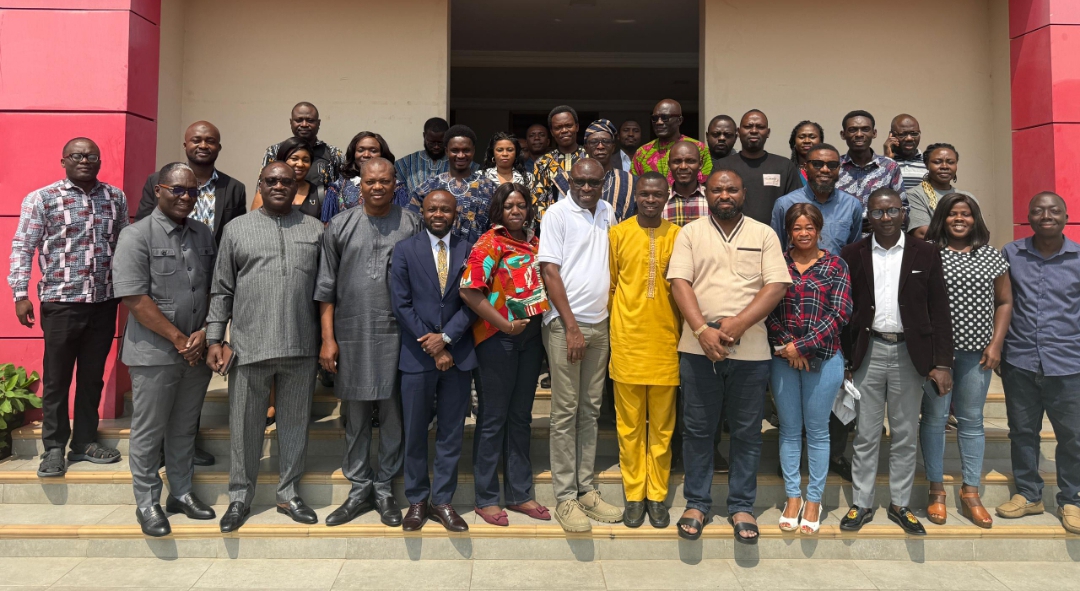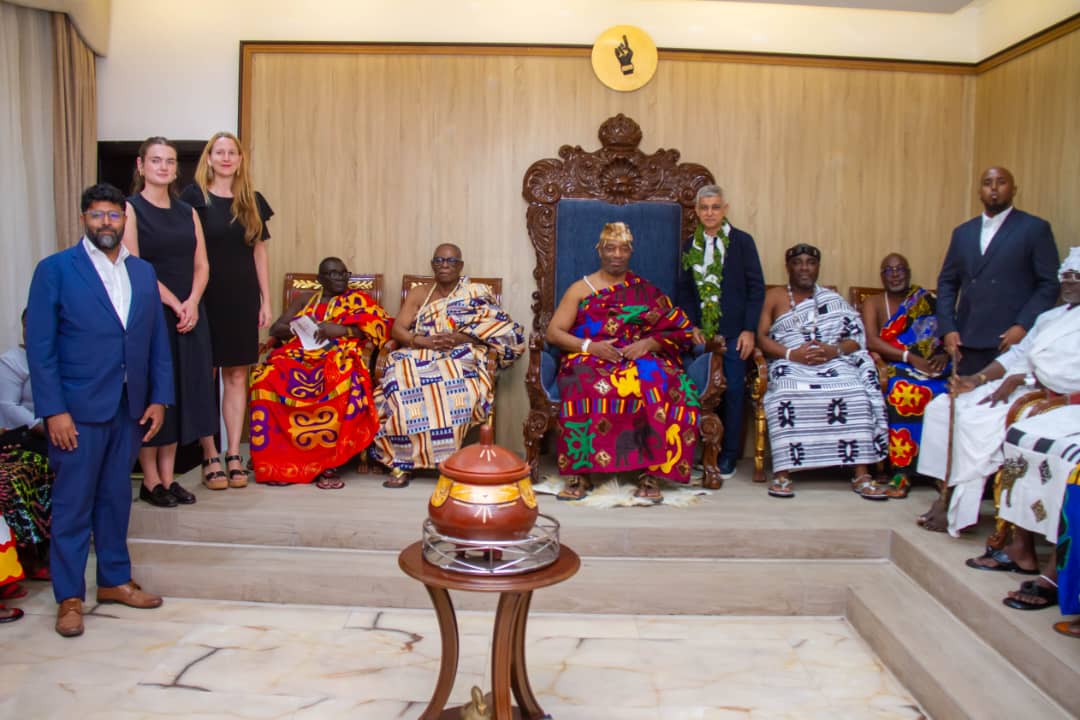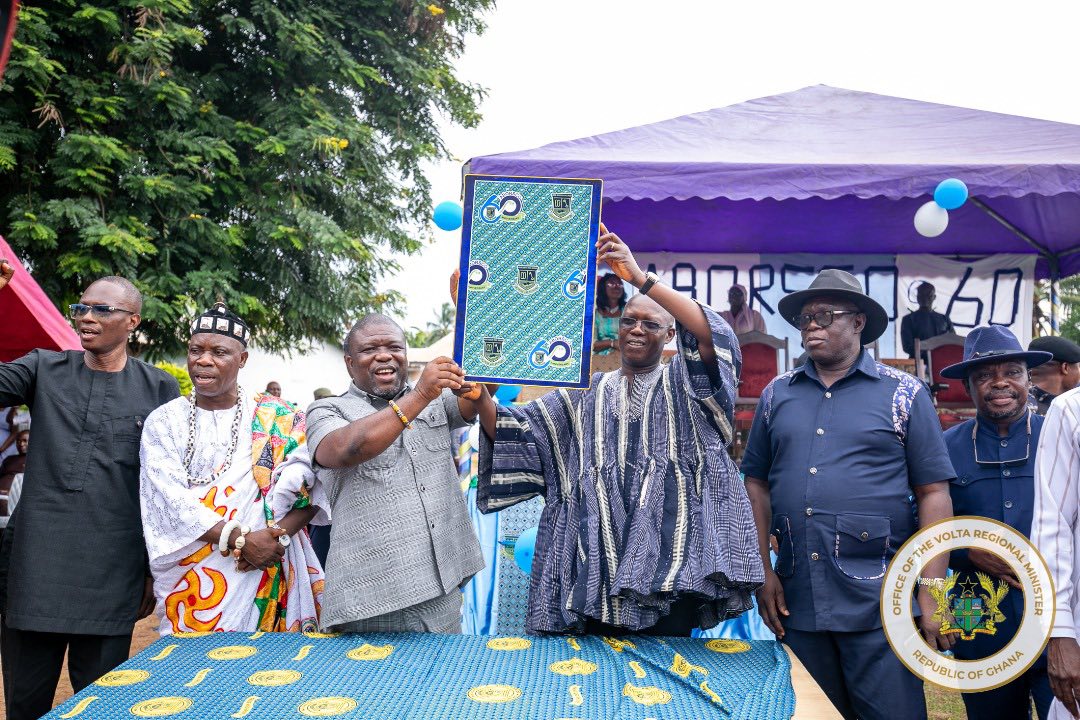The Bank of Ghana, in collaboration with the Ghana Journalists Association, has organized a capacity building workshop for some selected Journalists drawn from all the 16 regions on Non-Interest Banking and Finance (NIBF) as part ongoing stakeholder engagement in preparation towards operationalization of NIBF in Ghana.

Non-interest banking, also known as Islamic banking or Shariah-compliant banking, operates based on Islamic principles with features prohibiting the charging or paying of interest on transactions and in fairness adopting what is known as profit-and-loss sharing arrangements with customers.
Its transactions are often tied to tangible assets or services and its activities must adhere to Islamic law in order to avoid investments in prohibited sectors like pork, alcohol, or gambling.
Non-interest banking aims to promote fairness, transparency, and ethical financial practices. It’s a significant part of the financial system in many Muslim-majority countries and is also gaining interest globally and Ghana and through the Central Bank is developing the framework and conducting jurisdictional consultations to operationalize it in accordance with relevant Acts and Laws of the land.

The workshop held at the Eastern Regional Capital, Koforidua has taken Journalists through very important topics like: History and Development of Non-Interest Banking and Finance (NIBFs), Financial Products under NIBFs, difference between Islamic Development Bank and NIBF, Islamic Banks and Capital Market Development (Islamic of Sukuk bonds for infrastructure development) and the roadmap on the development of NIBF in Ghana led aTeam, made up with Officials from the Bank led by, Advisor, Bank of Ghana, Professor John Gatsi.
Starting the complementary roles NIBF plays in the conventional banking, Professor John Gatsi asserted that Non-Interest Banking and Finance will help attract FDI and real sector development as it can be use to finance big Infrastructure Projects in the country, thereby improving Socio-Economic activities and, to increase economic growth and development in Ghana.

According to him, NIBF will help deepen financial inclusion and economies of scope, promotes risk sharing in financial transactions, support sustainable development and support tradeexport and 24hr economy.
Professor Gatsi reiterated the fact that the Bank of Ghana values the deepening and diversification of the
banking and financial sectors and the Bank’s interest is to collaborate with Securities and Exchange Commission (SEC), the real sectors and the insurance sector to promote healthy financial and banking ecosystem to improve the economy.
“Non-interest banking and finance will soon create an expanded banking, capital market and insurance opportunities including diversified sources of financing infrastructure and business development in Ghana”, he added.
In his remarks on behalf of the Ghana Journalists Association (GJA), The General Secretary, Dominic Hlordzi has extended GJA’s profound gratitude to the Bank of Ghana and The Team for organizing “this timely and essential engagement on non-interest banking and finance”, submitting that “this initiative underscores your commitment to financial literacy and your recognition of the media’s crucial role in disseminating accurate and useful information to the public”.
He saluted colleagues and Participants for being part of the roll call for this engagement because the selection process, according to him, was tight, but “your presence here today is a testament to your dedication to professional development and your newsroom’s commitment to understanding evolving financial practices and systems”.
He said the GJA stands ready, at any time, to partner with the Bank of Ghana on similar capacity-building initiatives, because “capacity building is not just an aspiration for the GJA; it is a constitutional mandate”.

“We are committed to equipping our members with the knowledge and skills necessary to uphold the highest standards of professionalism in the performance of their duties.” The GJA General Secretary added
Mr. Hlordzi however admonished participants to share the acquired knowledge with colleagues in their respective newsrooms, ensuring a broader understanding of the benefits of non-interest banking and finance across the Ghanaian media landscape.






































